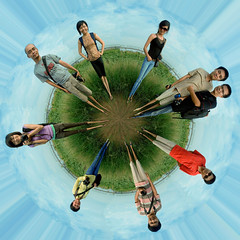It is getting to be that time again — computer replacement. I have let my replacement cycle get out of synch and am going to have to replace both my desktop and my laptop, but the laptop is more mission critical. I’m currently keeping my laptop together with tape and prayers.
My Mac friends chide me to go Mac. I dread Vista, but I am also fed up with the religious zeal part of the Mac/PC debate. Apple has just business practices that are just as awful as Microsoft. Yes, there are design and usability issues. But I work mostly in international development where most people cannot even consider Macs due to price differentials, so I’m mostly working in a pee cee world. If money were no object, I’d have both, but hey, that is not realistic.
What has been driving my delay has been Vista-Fear so I was happy to read these two ZDnet articles, the first on
crapware free PCs from Sony – which might put me over the edge for Sony’s higher cost, and the second on removing crapware from other PCs.
I am glad there is a chink in the ever growing trend of preloaded crapware on new computers. And I have a new appreciation for ZDnet, which I had not read in a while. So many good things to read, so little time.
 We are down to the little things to finish up our book, which is currently titled “Stewarding Technology for Communities of Practice.” Some of the feedback we’ve gotten from our friends is that the title is… well…. BORING!
We are down to the little things to finish up our book, which is currently titled “Stewarding Technology for Communities of Practice.” Some of the feedback we’ve gotten from our friends is that the title is… well…. BORING! Last week I wrote about
Last week I wrote about